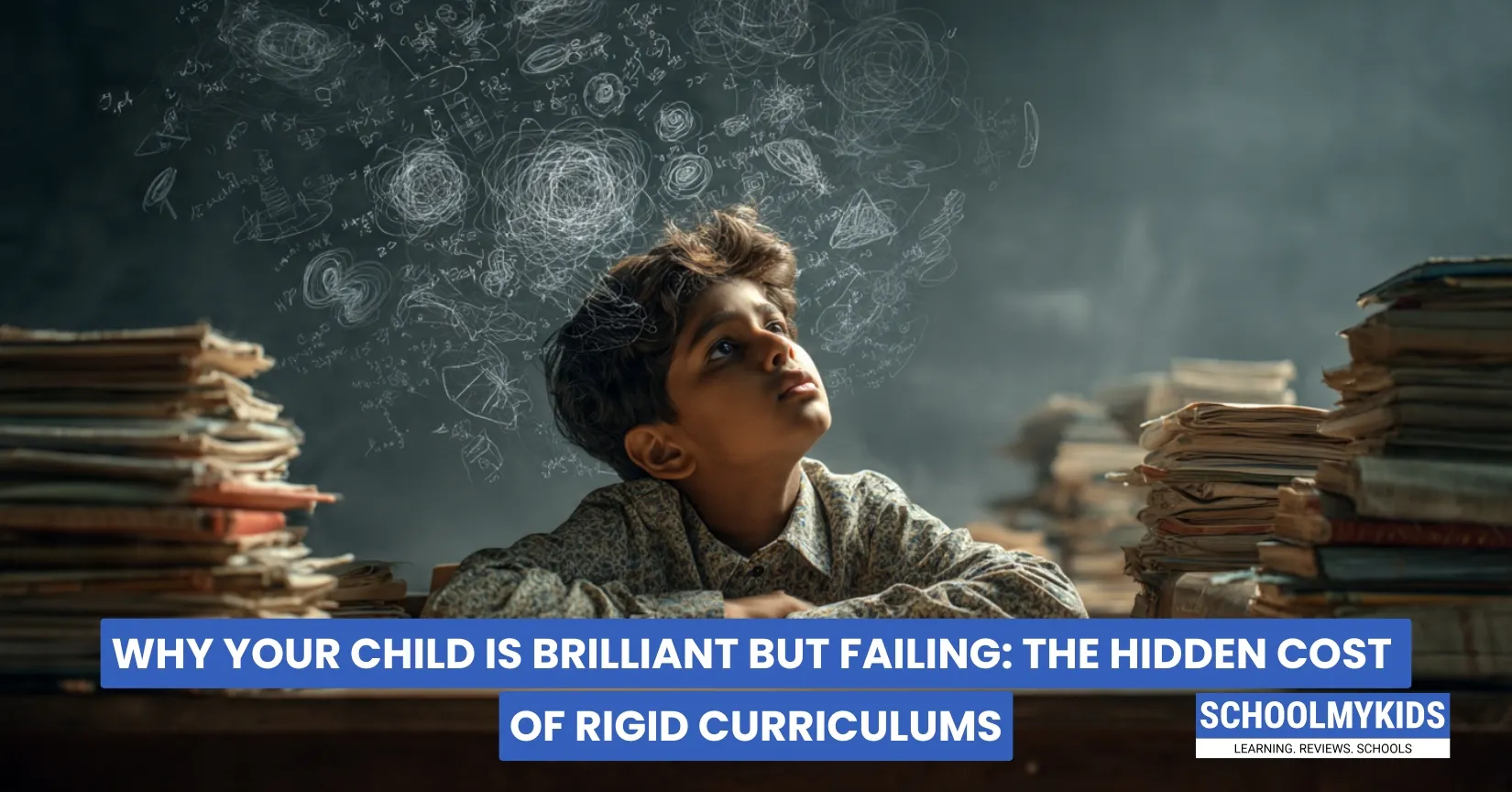Your child asks questions that make you pause. They connect ideas in ways you never thought of. They can spend hours building something, coding, or explaining why dinosaurs couldn't possibly survive in today's climate. But their report card? It tells a different story.
If this sounds familiar, you're not alone. And here's what nobody's telling you: your child isn't the problem.
The Brilliance You're Not Seeing on Report Cards
Let's talk about what brilliance actually looks like, because it rarely fits into the boxes schools have created.
Does your child question everything? That's critical thinking. Do they solve problems in unconventional ways? That's innovation. Can they hyperfocus on something they love for hours? That's the same trait that drives every successful entrepreneur, scientist, and artist.
But here's the catch: traditional curriculums don't measure these things. They measure how well a child can memorize formulas, sit still, and reproduce information exactly as it was taught. And when your brilliant kid fails at that, they start believing they're not smart.
That belief? It's the real issue here.
Why One Size Doesn't Fit All
We've got visual learners sitting through lectures, kinesthetic learners stuck at desks, and creative thinkers being told there's only one right answer. The education system was designed decades ago for a world that doesn't exist anymore, yet we're still teaching like it's 1985.
Your child who doodles through math class? They might need to visualize concepts. The one who can't seem to "just memorize" the periodic table? Maybe they need to understand the why before the what clicks. The kid who argues with the teacher? They're developing the courage to challenge ideas, something we desperately need more of.
Recent education reforms are trying to address this. There's talk of competency-based learning, personalized education paths, and skills over rote memorization. But change is slow, and your child is growing up right now.
What This Means for You
Here's where parents sometimes panic and think: "Should I pull them out of school? Is homeschooling the answer?"
Not necessarily. And here's why: the current system, flawed as it is, still opens doors. Those grades, those test scores, they matter for college admissions and opportunities. We can't pretend they don't.
But what we can do is change how our kids experience this system.
The Real Solution
Your job isn't to fix the curriculum. It's to help your child navigate it without losing themselves in the process.
Start by separating their worth from their grades. When they bring home a C, don't panic. Ask what they learned, what interested them, what didn't make sense. Show them that you value their understanding over their score.
Help them translate the curriculum into their language. If they're visual, let them draw their history notes. If they need movement, have them teach you concepts while walking around. If they learn by doing, turn theories into experiments.
Most importantly, point out their brilliance when you see it. "That question you asked about gravity? That's the same thing scientists debate." "The way you figured out that puzzle? That's problem-solving." Name it. Celebrate it. Make it real for them.
Conclusion
Your child isn't failing because they're not smart enough. They're struggling because they're being measured by a ruler that wasn't designed for them.
The education landscape is slowly shifting toward recognizing different types of intelligence, but until it catches up, you're the bridge. You're the one who can help them get through the system while keeping their spark alive.
Do help them get better grades. Find tutors if needed, work with teachers, and develop study strategies that match their learning style. But do it while reminding them: the grades measure how well they play this particular game, not how brilliant they are.
Because that kid who questions everything, who thinks differently, who doesn't fit the mold? They're exactly the kind of person the world needs. Don't let a rigid curriculum convince them otherwise.








Be the first one to comment on this story.